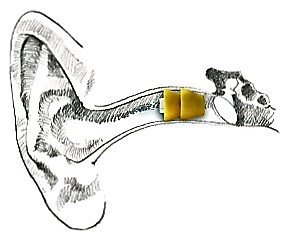Tinnitus Awareness Week 2015
Raising Awareness of Tinnitus
Tinnitus Awareness Week 2015 will run from 2-8 of February 2015 and aims to bring the condition of noises heard in the head and/or ears to the attention of thousands across the UK. Tinnitus awareness week is run by the British Tinnitus Association (BTA). The week is designed to highlight the incidence of Tinnitus across the UK. Affecting at least one in 10 of the UK population, about 6.3 million people. Tinnitus is an unseen condition which can cause distress to individuals of any age. Tinnitus varies greatly in intensity from mild to severe. At it’s worst it can have a dramatic affect on sleep and concentration. It can also lead to anxiety and depression.
No Cure Only Treatment
There is currently no cure for Tinnitus, however there are several tinnitus management treatments available to help manage the problem. In the recent past there has been some interesting studies undertaken into the underlying cause of Tinnitus, however, we are still unsure about the cause. It often accompanies hearing loss but it can be present without an associated hearing loss. This however is rare enough.
During Tinnitus Awareness Week the BTA will be raising awareness by encouraging people to talk about tinnitus and highlighting the help that is available in the UK. The Irish Tinnitus Association (ITA) would normally run awareness events to coincide with the UK. Their aims are similar to the BTA in that they wish to raise awareness among medical professionals that there is treatment for Tinnitus available. The ITA also gives access to a study that was undertaken a few years ago in Ireland detailing experiences of Tinnitus sufferers here. The report can be downloaded here The Quest For Quiet.
What is tinnitus?
Tinnitus is the perception of noises in the head and/or the ears which has no external source. It is not a disease or an illness; it is a symptom generated within the auditory system. The noise may be in one or both ears, or in the head, or it may be difficult to pinpoint its exact location. The noise may be low, medium or high pitched. There may be a single noise or two or more components. The noise may be continuous or it may come and go.
Who gets tinnitus?
Experiences of tinnitus are very common in all age groups, especially following exposure to loud noise. Tinnitus is known to be one of the most common health problems facing the UK today. Mild tinnitus is common - about 10% of the population have it all the time and, approximately half of patients with tinnitus find it moderately or severely distressing. There is a widely held misconception that tinnitus is confined to the elderly, but various studies have shown that it can occur at any age, even in quite young children. People who are hard of hearing can also experience tinnitus.
What does tinnitus sound like?
The sound of tinnitus varies from one person to another. The noises are usually described as ringing, whistling, buzzing or humming, which can manifest themselves at a range of volumes from a low, ambient noise to a level that can seem overwhelming. Some people hear the noise as a low frequency; others find it either medium or high pitched. The noise may be continuous for some people and may come and go for others. Sample tinnitus noises are available from the BTA’s website
What causes tinnitus?
The causes of tinnitus are still not fully understood, but tinnitus is associated with:
- Hearing loss - the delicate hair cells in the inner ear may reduce in number due to ‘wear and tear’ as people age. This gradual change can cause hearing loss, which makes tinnitus more noticeable as it is not masked by external sound.
- Exposure to loud noise - hair cells can also be damaged by exposure to loud noise, which could generate tinnitus
- Stress and anxiety - it is not always clear whether stress causes the onset of tinnitus. However, tinnitus may be more noticeable if you are anxious or stressed
- Ear infections - middle ear infections can cause hearing loss and tinnitus. Symptoms will normally be temporary, but it is important to have the underlying infection treated by a GP






